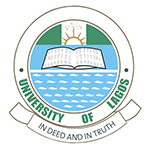Introduction
The Federal University of Petroleum Resources is a higher education institution in Nigeria that focuses on education, research and training in oil-related fields. The school trains professionals in multiple oil-related fields such as petroleum engineering and petroleum geology, and plays an important supporting role in the development of the oil industry in Nigeria and even Africa.
Overview
Student size: The number of students is moderate, covering undergraduate, master and doctoral levels. With the increasing demand for professional talents in the oil industry, the school's enrollment scale is also gradually expanding, providing a large number of professional talents for the oil field.
Subject areas: The disciplines are mainly concentrated in fields closely related to the development and utilization of oil resources, such as oil and gas engineering, petroleum geology, petroleum chemistry, and petroleum economics. At the same time, it also involves some auxiliary disciplines, such as the application of computer science in the oil industry, environmental science and sustainable development of the oil industry.
History and establishment time
The school was established in 2007 by the Nigerian Federal Government to strengthen the country's professional talent training and scientific research capabilities in the field of oil resources. Its development is closely linked to the strategic needs of the Nigerian oil industry.
School Strength
Teaching Staff: It has a team of highly professional teachers, many of whom have rich practical experience and teaching experience in the oil industry. They come from a number of related professional fields such as petroleum engineering, geological exploration, and chemical engineering. Some teachers also participate in international petroleum research projects and academic exchange activities to bring international cutting-edge knowledge and concepts to students.
Scientific Research Achievements: It has carried out extensive scientific research activities in oil exploration technology, improving oil recovery, and optimizing petrochemical processes, and has achieved a series of results. The school's scientific research results have important application value for the technological innovation and production efficiency improvement of enterprises such as the Nigerian Petroleum Corporation. For example, in the field of petroleum geology research, it provides theoretical support for the exploration of new oil reservoirs; in the field of petroleum engineering, the new technologies developed help reduce mining costs.
International Cooperation: It has established cooperative relations with many well-known international petroleum colleges and oil companies. Through student exchange programs and joint training programs with foreign universities, students can be exposed to the practical experience and academic views of petroleum engineering in different countries. At the same time, cooperation with international oil companies also provides the school with opportunities for internships and scientific research cooperation, and enhances the school's reputation in the international oil field.
Nature of the institution
This is a public university funded and managed by the Nigerian federal government. The school's development plan is closely linked to the national oil industry policy and is an important base for the training of oil talents in Nigeria.
Educational philosophy
Aiming at cultivating high-quality talents that meet the needs of modernization of the oil industry, it focuses on combining theory with practice. It emphasizes that students should master solid theoretical knowledge of oil majors and cultivate their ability to solve practical oil engineering problems through practical teaching links (such as laboratory simulation, field practice, etc.). At the same time, it focuses on cultivating students' innovative thinking and teamwork spirit to cope with the ever-changing technology and market environment of the oil industry.
Key laboratories and disciplines
Key disciplines: Petroleum engineering and petroleum geology are the school's trump cards. The petroleum engineering discipline covers multiple professional directions such as reservoir engineering, drilling engineering, and oil production engineering, and is in a leading position in Nigeria in terms of teaching and scientific research; the petroleum geology discipline has strong strength in reservoir geological modeling and sedimentary phase analysis.
Key laboratories: There is a petroleum engineering laboratory equipped with advanced drilling simulators, reservoir physical simulation devices and other equipment for drilling process experiments, reservoir dynamic monitoring experiments, etc.; the petroleum geology laboratory has high-precision core analysis instruments, seismic exploration simulation equipment, etc., which provide experimental conditions for geological exploration and reservoir research.
Faculties and Colleges
The school has the School of Petroleum Engineering, the School of Petroleum Geology, the School of Petroleum Chemistry and Refining, the School of Petroleum Economics and Management, etc. Each college is further divided into several professional departments, such as the Drilling Engineering Department and the Oil Production Engineering Department of the School of Petroleum Engineering, to provide students with systematic subject education.
Ranking
In the domestic university rankings in Nigeria, it ranks relatively high in the field of petroleum-related majors. Internationally, although there is still a gap with the world's top petroleum universities, it has a high reputation and competitiveness among petroleum professional colleges in Africa.
Expenses
Tuition fees: For Nigerian students, tuition fees are relatively reasonable, and the government will provide certain funding policies. For international students, tuition fees vary according to different majors and degree levels. Generally, the tuition fees for popular majors such as petroleum engineering are relatively high.
Living expenses: The cost of living in the area where the school is located is relatively moderate due to the promotion of the oil industry. Students' living expenses mainly include accommodation fees, food fees, transportation fees, etc. The school dormitory fees vary according to different accommodation conditions, and the food and transportation fees are relatively reasonable under the local economic level.
Campus Environment
Architectural Style: The architectural style of the campus has a modern industrial atmosphere. The design of teaching buildings, laboratories and other buildings focuses on functionality and practicality, and also incorporates some local cultural elements.
Campus Facilities: It has complete teaching facilities, including modern classrooms, advanced laboratories, professional libraries (the collection of books is mainly petroleum-related majors, covering multiple fields such as petroleum engineering, geology, chemistry, etc.), computer centers, etc. Living facilities include student dormitories (providing different levels of accommodation conditions), canteens, sports venues (such as basketball courts, football fields, etc., for students' extracurricular sports activities), etc., to meet students' learning and living needs.
Natural Landscape: There are certain green areas on campus, planted with trees and flowers, which add a natural atmosphere to the campus environment with industrial technology as the theme, providing students with a relatively comfortable learning and living environment.
-

University of Lagos
-

Benson Idahosa University
-

Bauchi State University
-

Federal University of Technology, Akure
-

Tai Solarin University of Education
-

University of Benin
-

Bayero University Kano
-

Ahmadu Bello University
-

Madonna University
-

Redeemer's University
-

Mesoamerican University
-

Istmo University
-

Mariano Galvez University of Guatemala
-

Regional University of Guatemala
-

Galileo University
-

Francisco Marroquín University
-

Rafael Landívar University
-

University of the Valley of Guatemala
-

University of San Carlos of Guatemala
-

Technological Institute of Tlaxcala Plateau
-

Golfo University
-

Technological University of South Sonora
-

Technological University of Huejotzingo
-

Tizimín Institute of Technology
-

Chilpancingo Institute of Technology

